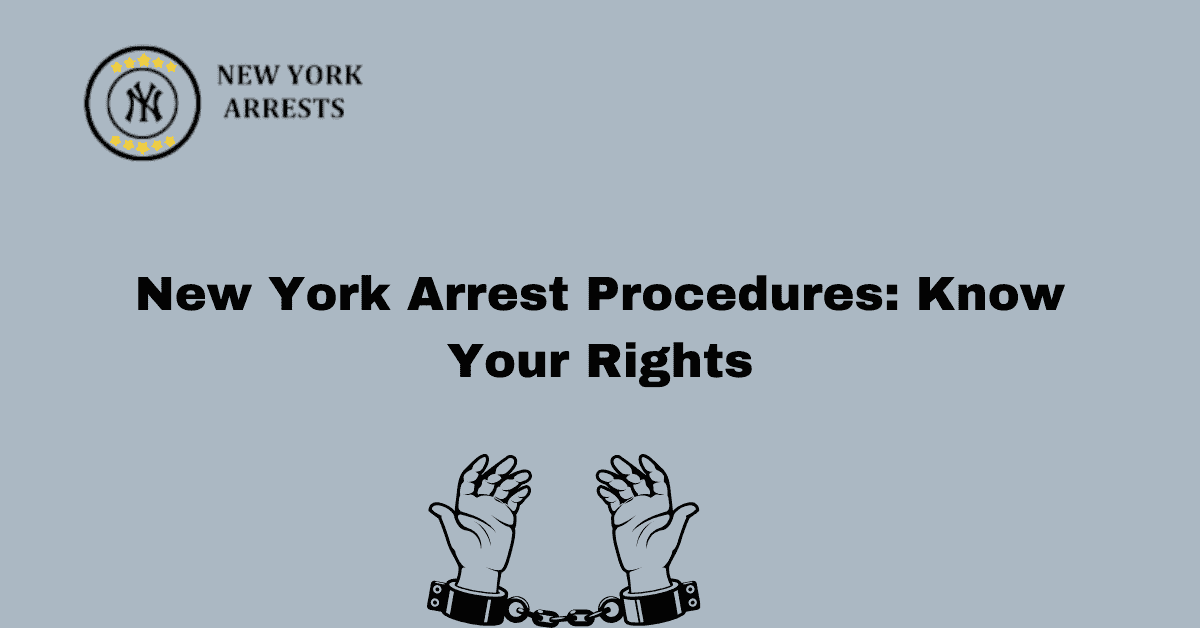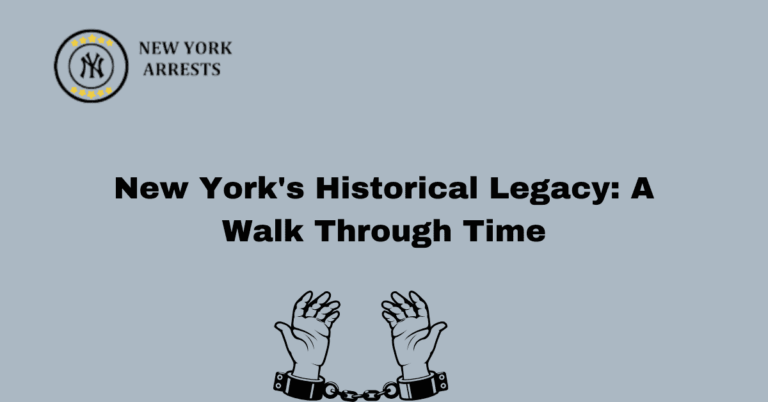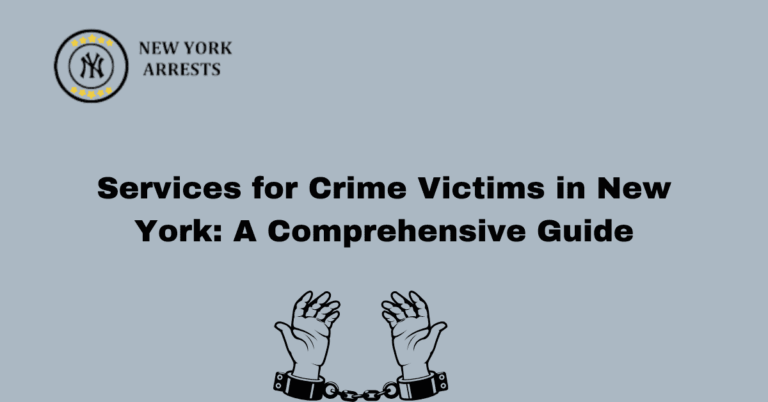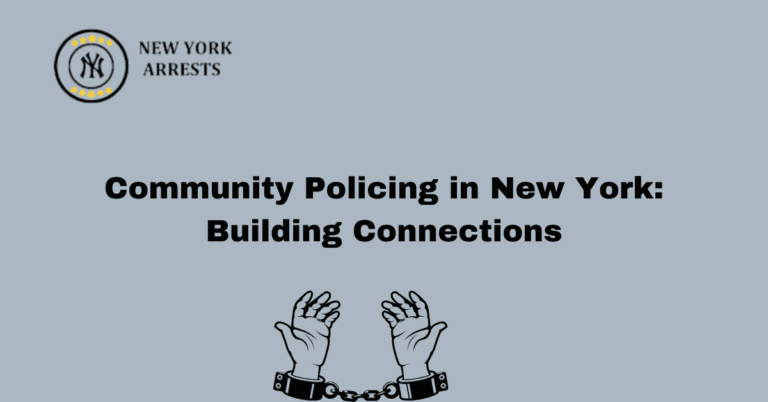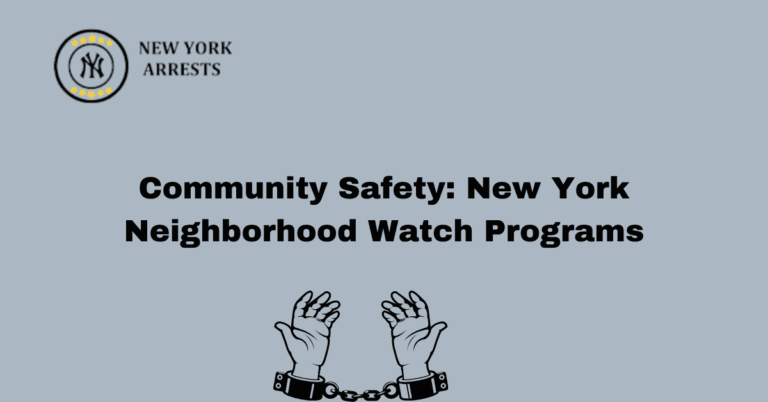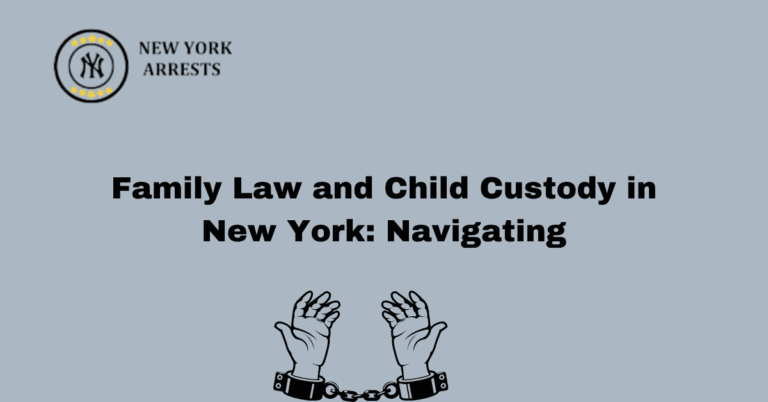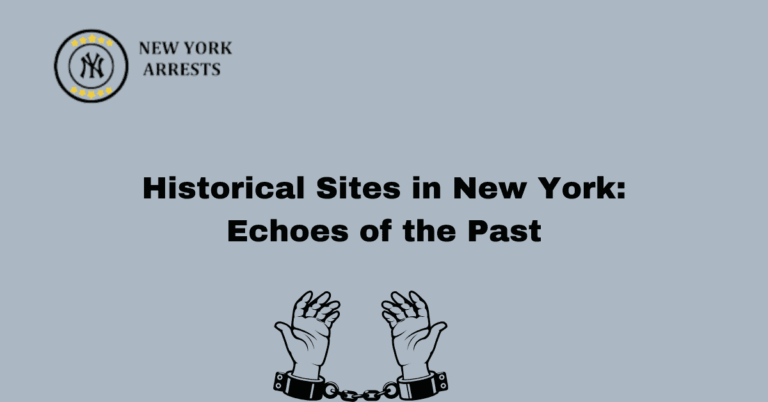New York Arrest Procedures: Know Your Rights
Being arrested can be a frightening and confusing experience. Whether you are being arrested for a minor offense or a more serious crime, it is important to know your rights and understand the procedures that will follow. In the state of New York, there are specific guidelines and protocols that law enforcement must adhere to during an arrest. By familiarizing yourself with these procedures, you can ensure that your rights are protected and that you are treated fairly throughout the process.
Arrest Procedures in New York: The Arrest Process
When a person is arrested in the state of New York, there are specific procedures that law enforcement must follow. These procedures ensure that the individual’s rights are protected and that they are treated fairly throughout the process.
Miranda Rights: Your Right to Remain Silent
One of the most important aspects of the arrest process is the reading of Miranda rights. These rights, established by the Supreme Court, inform individuals of their right to remain silent and their right to an attorney. Law enforcement officers must read these rights to individuals at the time of arrest.
Booking and Processing: Documenting the Arrest
After an arrest, individuals are typically taken to a police station for booking and processing. During this step, law enforcement officers will record personal information, such as name, address, and date of birth. They will also take fingerprints and photographs as part of the identification process.
Initial Appearance: Facing a Judge
Following the booking and processing stage, individuals will have an initial appearance before a judge. This is where the judge will inform the individual of the charges against them and set bail if necessary. It is important to have legal representation at this stage to ensure your rights are protected.
Pretrial Proceedings: Gathering Evidence
During the pretrial proceedings, both the prosecution and the defense will gather evidence to build their cases. This may involve interviewing witnesses, reviewing police reports, and examining any physical evidence. It is crucial to have legal representation during this stage to ensure that any evidence obtained is admissible in court.
Arraignment: Pleading Guilty or Not Guilty
At the arraignment, individuals will enter a plea of guilty or not guilty. If a plea of guilty is entered, the case may proceed to sentencing. If a plea of not guilty is entered, the case will move forward to trial. It is important to consult with an attorney before entering a plea to understand the potential consequences.
Pretrial Motions: Challenging Evidence or Procedures
During the pretrial motions phase, both the prosecution and the defense have the opportunity to challenge evidence or procedures. This may involve filing motions to suppress evidence, arguing for the dismissal of charges, or requesting a change of venue. An experienced attorney can navigate this stage to protect your rights.
Trial: Presenting the Case in Court
If the case proceeds to trial, both the prosecution and the defense will present their cases in court. The prosecution will present evidence and call witnesses to prove the guilt of the accused, while the defense will challenge the evidence and present their own witnesses. A fair and impartial jury will then determine the outcome of the case.
FAQs
What are the rights of individuals during New York arrest procedures?
During New York arrest procedures, individuals have certain rights that protect them. These rights include the right to remain silent, the right to an attorney, and the right to be free from unreasonable searches and seizures. It is important to know and exercise these rights to ensure a fair and just process.
Can the police search my property without a warrant during an arrest in New York?
No, in most cases, the police cannot search your property without a warrant during an arrest in New York. However, there are certain exceptions to this rule, such as if the police have probable cause to believe that evidence of a crime is present and could be destroyed if not immediately seized.
What should I do if I am arrested in New York?
If you are arrested in New York, it is important to remain calm and assert your rights. You should not answer any questions without an attorney present and you should ask for an attorney as soon as possible. Cooperate with the police to the extent required by law, but remember that you have the right to remain silent.
How long can the police hold me without charging me in New York?
In New York, the police generally cannot hold you without charging you for an extended period of time. The law requires that you be brought before a judge within a reasonable amount of time, usually within 24 to 48 hours, to determine whether there is enough evidence to hold you for trial.
What happens if my rights are violated during New York arrest procedures?
If your rights are violated during New York arrest procedures, it is important to consult with an attorney. They can help determine whether any evidence obtained as a result of the violation can be suppressed in court. Additionally, you may be able to file a complaint against the police department for the violation.
Can I be arrested in New York without a warrant?
Yes, in certain circumstances, you can be arrested in New York without a warrant. If a police officer witnesses a crime being committed or has probable cause to believe that you have committed a crime, they can arrest you without a warrant. However, they must still have a valid reason to believe you are involved in criminal activity.
conclusion
Being arrested can be a daunting experience, but understanding the arrest procedures in New York can help ensure that your rights are protected throughout the process. From the initial arrest to the trial, it is crucial to have legal representation to navigate the complexities of the criminal justice system and aim for a fair outcome.

